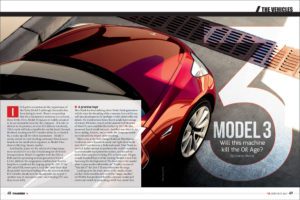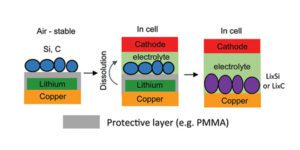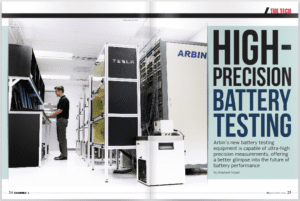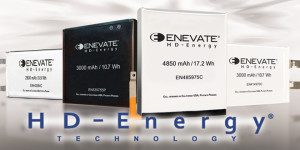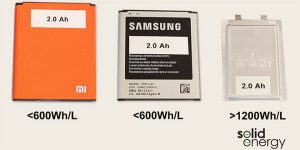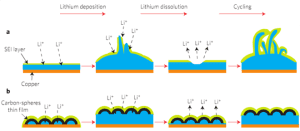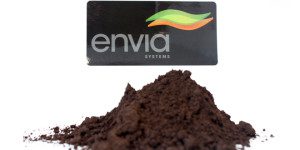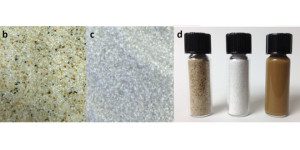It’s hard to overestimate the importance of the Tesla Model 3 (although the media has been doing its best). There’s no question that it’s a momentous motorcar on (at least) three levels. First, Model 3’s success is widely assumed to be an existential issue for the company – if it fails to deliver on its… Read more »
Search Results Found For: "silicon anodes"
Researchers increase energy density by eliminating first-cycle capacity loss
In the quest to increase the energy density of Li-ion batteries, Yuan Yang, an Assistant Professor at Columbia Engineering, has developed a novel approach: reducing or eliminating capacity loss that occurs when a battery is first manufactured. In a paper recently published in Nano Letters, Yang and colleagues explain how this new method could improve… Read more »
Arbin’s new battery testing equipment offers a glimpse into the future with ultra-high precision
Arbin accelerates testing of production Li-ion cells with ultra-high precision equipment. Automakers are a notoriously conservative bunch. They go to great lengths to test and validate new designs before putting them into production vehicles. And, thanks to their cautious ways, today’s vehicles are more reliable than ever. Recently, however, the addition of advanced Li-ion battery… Read more »
Enevate says its batteries can charge 5-10 times faster than conventional Li-ion
California-based Enevate Corporation has announced an “ultrafast charging” feature for its batteries, which has been demonstrated to provide a 90% charge in 15 minutes while increasing capacity compared to current Li-ion batteries. Enevate’s HD-Energy Technology uses silicon-dominant composite anodes, and the company claims an 25-50% increase in energy density over conventional graphite anode cells. The… Read more »
ORNL breakthrough could enable wider application of graphene composites
Graphene, a two-dimensional hexagonal lattice of carbon atoms, has great potential in a number of EV-related applications, including anodes, lithium-sulfur batteries and ultracapacitors. With current technology, however, it’s impractical to use on a large scale, and researchers have been limited to using small flakes of the material. Now a team of researchers at the DOE’s… Read more »
SolidEnergy hopes to double EV battery range by 2017
SolidEnergy, an MIT spin-out company commercializing solid electrolyte technology, plans to release a 20 Ah EV battery in 2017, which it says will offer more than two times the range of current Li-ion batteries. The core of SolidEnergy’s technology is a Solid Polymer Ionic Liquid (SPIL) electrolyte, which enables the use of an ultra-thin lithium… Read more »
Stanford team develops stable lithium anode
Are the knights of nanotechnology closing in on the Grail at last? A team of researchers at Stanford University claim that they are, and have chronicled their deeds in the journal Nature Nanotechnology. The valiant engineers report that they have designed a pure lithium anode. “Of all the materials that one might use in an… Read more »
Envia wins $7.7 million contract to develop advanced cathode and anode materials
The US Advanced Battery Consortium (USABC), a collaboration among the Big Three US automakers, has awarded a $7.7-million battery technology development contract to Envia Systems of Newark, California. The competitively bid contract, which is co-funded by the DOE and includes a 50 percent Envia Systems cost-share, is for a 36-month program that will focus on… Read more »
For a better battery, hit the beach!
Who knew? The miracle material that could enable a game-changing battery breakthrough is (drumroll, please)…beach sand. Researchers at the University of California Riverside have created a lithium-ion battery that outperforms the current industry standard by three times, using a nanoscale silicon dioxide anode. “This is the holy grail – a low cost, non-toxic, environmentally friendly… Read more »
Former Secretary of Energy Steven Chu joins board of Amprius
Dr. Steven Chu, a Nobel Prize winner in Physics and the former US Secretary of Energy, has joined the Board of Directors of Amprius, a developer of lithium-ion batteries with operations in California and China. Amprius, co-founded by Stanford Professor Yi Cui, introduced its first generation of batteries in May 2013, and it is now… Read more »




